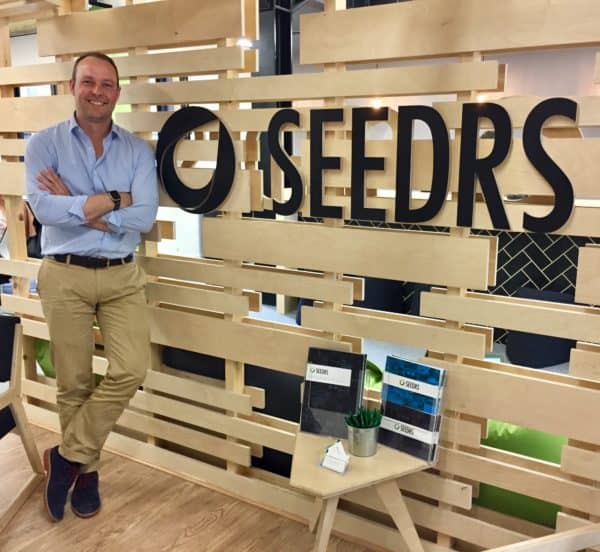Equity crowdfunding platform Seedrs has provided an update on the progress of their secondary market – the first successful secondary market to launch in the global crowdfunding sector. Launched in 2017, Seedrs says the trading market has now seen 2,990 exits in 248 different firms. While most companies will never list on a public exchange, and only a few will be acquired, the Seedrs secondary market solves a pressing point for investors who back early stage firms – a path to an exit.
[clickToTweet tweet=”While most companies will never list on a public exchange, and only a few will be acquired, the Seedrs secondary market solves a pressing point for investors who back early stage firms – a path to an exit” quote=”While most companies will never list on a public exchange, and only a few will be acquired, the Seedrs secondary market solves a pressing point for investors who back early stage firms – a path to an exit”]
Thomas Davies, Chief Investment Officer at Seedrs, says they are delighted with the success of the Seedrs Secondary Market so far. Davies adds that they are only getting started and they have some “exciting” plans on the roadmap for the secondary market;
“We’ve seen increasing levels of trading every month, demonstrating that the demand for a fully functioning secondary market absolutely exists,” says Davies. “Our portfolio of high-growth exciting businesses such as Revolut, Airsorted and Perkbox is sought after and people who missed out on their initial Seedrs funding round are using our secondary market to get in.”
Seedrs shares that trading volume has ramped 918% since launch month with the most recent cycle (June) seeing 601 share lots traded. While still small in volume, the rapid growth may foreshadow a high value feature of providing liquidity for users of the UK based platform. The total volume since inception is approximately £1 million.
The ability to provide an effective secondary market has been helped by the fact that all companies listed on Seedrs use a nominee structure – making shareholder management far simpler.
The Seedrs Secondary market was launched with several key restrictions. Originally, only existing shareholders of a specific company could buy or sell their shares. At first, there was a pricing cap of £1000. The limitations were put in place to help the Seedrs team better understand the needs of buyers and sellers. After eight months of operations, Seedrs opened up the market to all investors – whether they were previous shareholders or not. This immediately boosted overall volume.
Seedrs is now looking to remove the trading cap while incorporating new technology including an actual auction process. Management hopes to improve the efficiency and speed of trade execution. One of the single biggest challenges is providing sufficient liquidity for thinly traded shares. Seedrs has managed this by opening up trading a single day each month. Shares trade at “fair value”, which is the price Seedrs sets pursuant to their Valuation Policy.
 Inevitably, crowdfunding platforms will be measured not just by the funding raised by issuers but by the returns generated by investors. Investing in early stage companies is a highly risky pursuit. Investors may mitigate this risk by backing a broad portfolio of early stage firms with the winners outweighing those firms that underperform. Seedrs states that Veeqo, an e-commerce business that first raised capital online in 2013, is now generating 19X returns for investors following its recent Series A round.
Inevitably, crowdfunding platforms will be measured not just by the funding raised by issuers but by the returns generated by investors. Investing in early stage companies is a highly risky pursuit. Investors may mitigate this risk by backing a broad portfolio of early stage firms with the winners outweighing those firms that underperform. Seedrs states that Veeqo, an e-commerce business that first raised capital online in 2013, is now generating 19X returns for investors following its recent Series A round.
Fintech unicorn Revolut is another success story. The most recent funding round for the challenger bank pegged a valuation of $1.7 billion on the firm. This came eight months after the company’s fundraising round on Seedrs giving investors a 3.5x return and exit opportunity on the secondary market.


